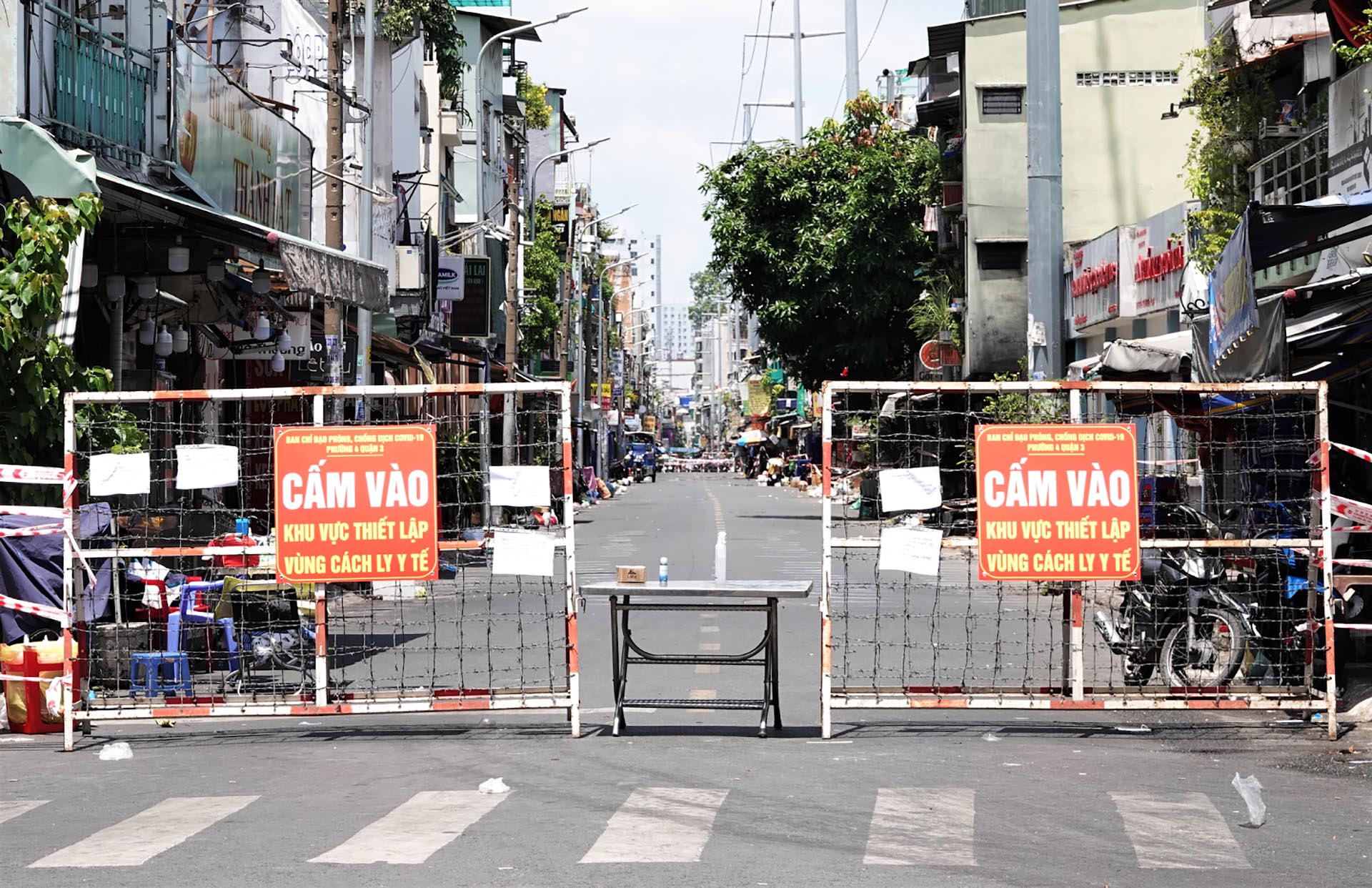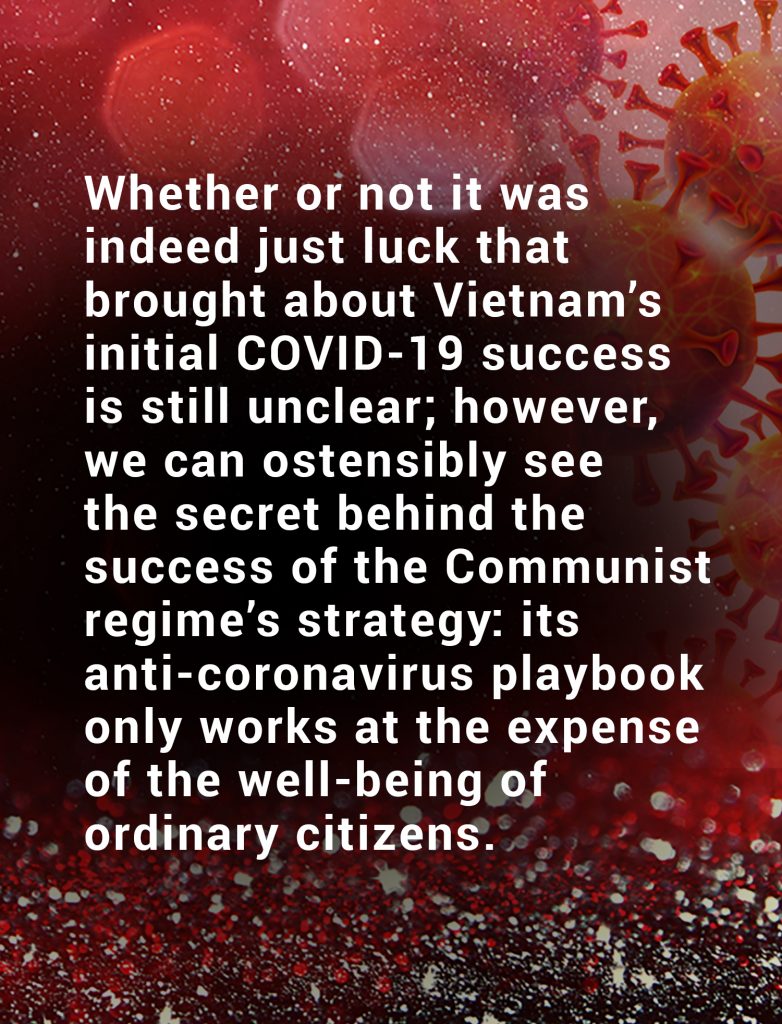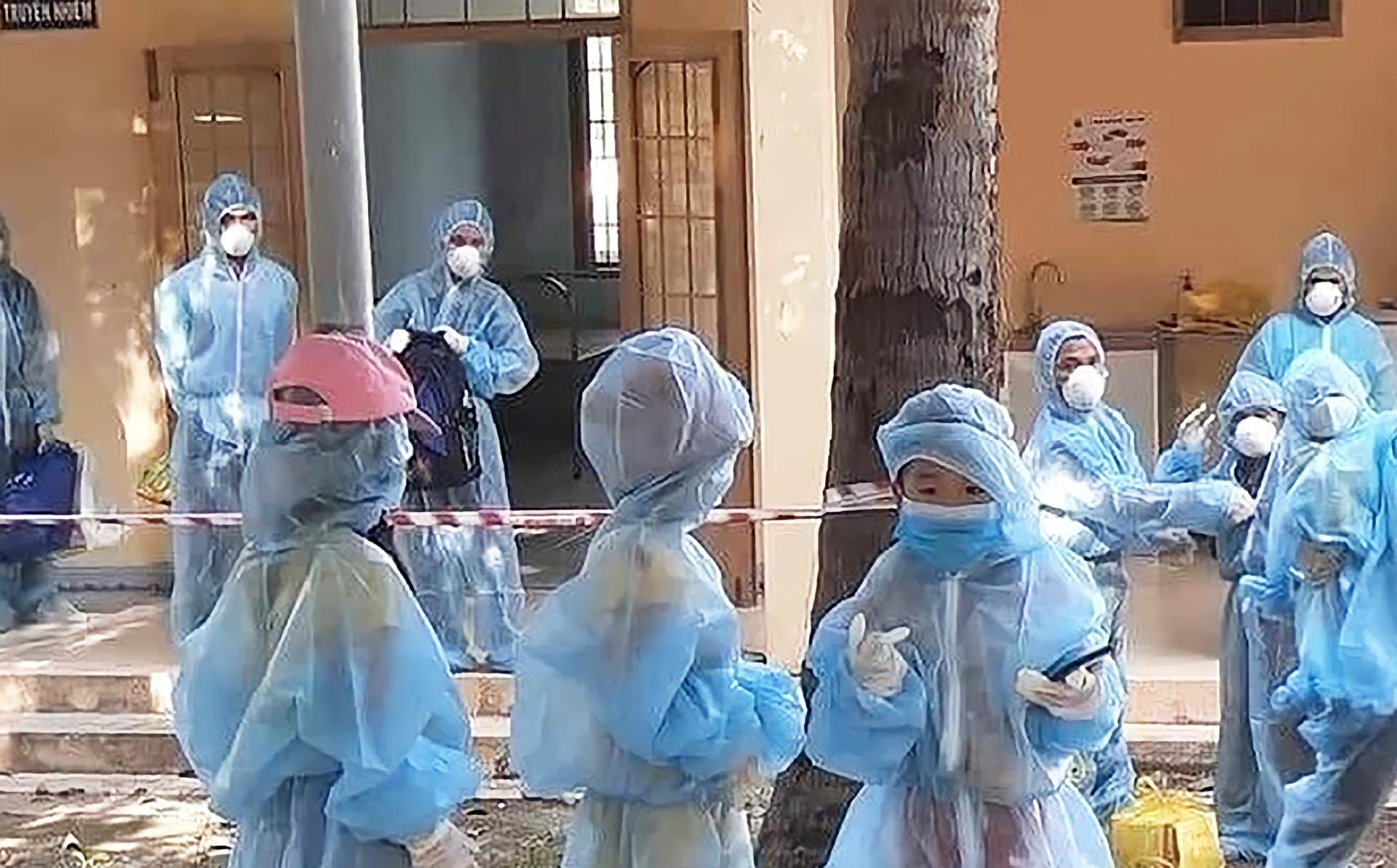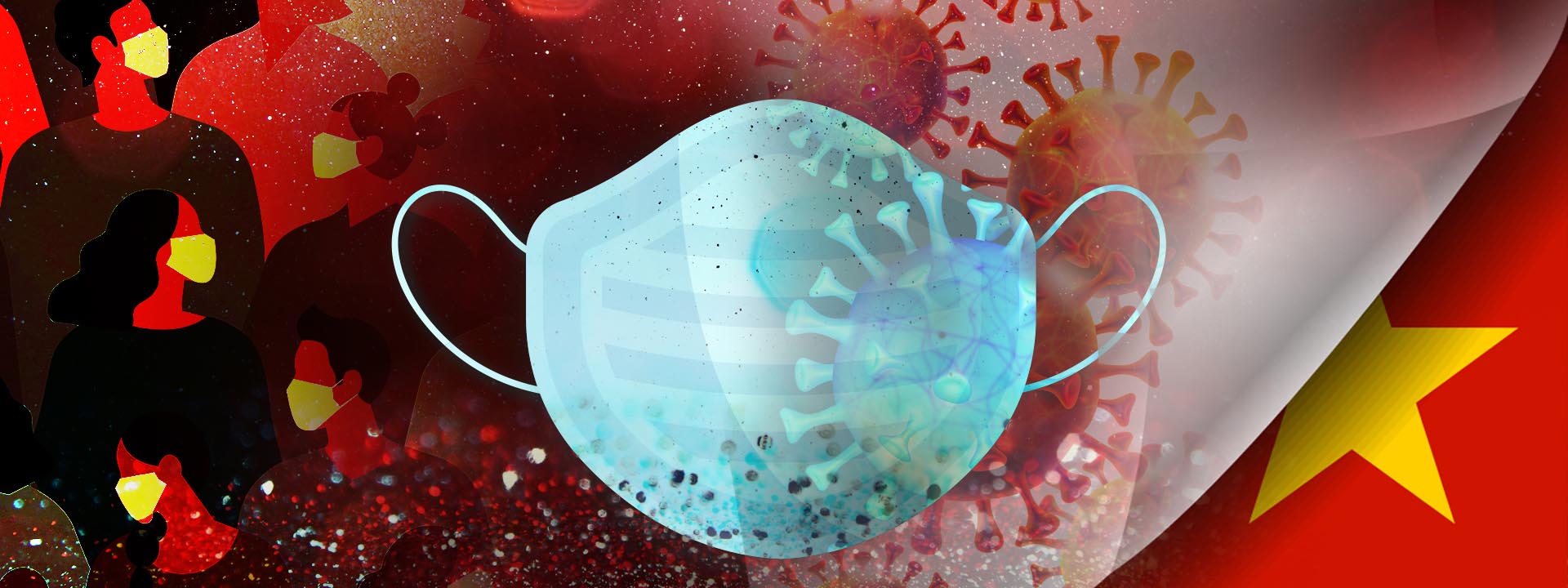Last year, when COVID-19 ravaged the healthcare system and economy of even the most developed countries in the world, Vietnam’s early success in containing infections and keeping the death toll low drew praise and admiration from the international media and community.
“Fighting the pandemic as if we are fighting an enemy,” the country’s anti-coronavirus slogan declared.
Vietnam’s early successful anti-coronavirus protocols primarily focused on isolating infected areas, facilitating rapid contact tracing, mandatory hospitalization of infected patients and their close contacts, and imposing fines on those who broke the social distancing rules.
While these protocols seem efficient, experts point out that only a few countries possess control structures like Vietnam’s in order to deal with the pandemic — let alone be willing to carry them out under actual circumstances.
This control playbook helped the country get through the very first waves of COVID-19 infections, but the most recent outbreak has revealed the darker sides of how Vietnam handles the pandemic in its rigid and abusive nature.

July 2021. Barbed wire fences have been set up in a quarantine area in District 3, Ho Chi Minh City. Vietnam was initially successful in controlling the pandemic, but cases are rising once more. The impending outbreak exposes the weaknesses in the country’s coronavirus control protocols. Photo from Sy Dong/Thanh Nien Online.
When “collective benefits” dwarf human rights
In Vietnam, the need to curb the pandemic seems to have outmatched other substantial matters, such as upholding certain human rights and looking after people’s livelihoods.
The Southeast Asian country witnessed its highest surge of COVID-19 cases in recent days, leading the government to put in place heightened control measures, including strict lockdown and movement restrictions. Ho Chi Minh City and the entire southern region remain under lockdown while adopting Directive 16, the government’s anti-coronavirus protocol, to curb the spread of COVID-19.
Directive 16 requires all citizens to follow disease control guidelines and stay at home, except for “necessary duties,” while restricting gatherings of more than two people in public places. It also halts all means of transportation.
requires all citizens to follow disease control guidelines and stay at home, except for “necessary duties,” while restricting gatherings of more than two people in public places. It also halts all means of transportation.
Although not legally binding, the new ordinance raises concerns about whether the authorities’ policies for “curbing the pandemic” interfere with fundamental human rights, such as the freedom of movement and speech.
People can be coerced into compliance or fined if they go outside without a “reasonable purpose” or post content deemed to be “false information” on social media.
Of course, these terms — “reasonable,” “necessary,” or “false” — are arbitrarily defined by local authorities.
Since the whole of Ho Chi Minh City was locked down, there have been over 12,000 cases in which people were fined for “violating anti-coronavirus regulations.” That would include more than 2,000 cases where people were fined for going outside, despite reports that they were properly wearing masks and keeping a safe distance. More ironically, the authorities have even set a daily quota for how many people to fine.
Besides its legal ambiguity, Directive 16 is also being abused by police officers and security forces to serve their interests, under the guise of containing the coronavirus. Petty corruption and alleged misconduct are commonplace.
Multiple personal experiences, videos, and short clips circulating on social media show the truth behind the “ideal anti-coronavirus model,” which Vietnamese authorities brag about so enthusiastically.
In one video, policemen and security guards are seen entering a house and grappling with a local family, allegedly accusing them of violating social distancing measures for selling essential produce. The security forces later confiscated all of their products, and then dragged the homeowner into their vehicle.
The lack of independent oversight of law enforcement, along with the absence of transparency on the COVID-19 stimulus and relief policies, is nurturing an environment where abuse of power and corruption flourish.
These accounts are not difficult to find on social media. Several other similar videos and Facebook posts routinely show police taking advantage of anti-coronavirus measures to harass passers-by, arbitrarily fine people, penalize street vendors, or implicitly ask for bribes.

Young children isolated inside a quarantine camp in Phu Yen Province. Vietnam employs broad health measures, applying to everyone regardless of age. Even children that test positive for COVID-19 are brought to an isolation facility, away from their parents. Photo from Soha.vn.
Behind the successful anti-coronavirus model
In reality, these “effective” methods that helped Vietnam overcome the first three waves of COVID-19 infections are not immune to shortcomings and inefficiency.
Vietnam’s three-pronged strategy operates on the principle of tracing infected patients, isolating residential areas, and administering treatment. Though this trace-map-quell approach initially appeared to be successful, it came at the cost of hurting the country’s economy, sinking many into unemployment. To help combat its weakened economy, the government implemented a financial assistance program, though kept behind a long and complicated bureaucracy.
The effectiveness of centralized quarantine camps, where COVID-19 patients and their direct contacts are compulsorily held while awaiting testing and treatment, still remains a big question. Nevertheless, these camps are hailed by state media as “effectively functioning” to curb the coronavirus outbreaks, and therefore should remain “a top priority method.”
Nevertheless, the surge in cases in recent weeks has overloaded the capacity of those camps. The overcrowding, coupled with their poor and unsanitary conditions, put both asymptomatic patients and healthy people at risk of being infected. Moreover, since the quarantine requirements are applied regardless of age, children were also put in isolation, away from their parents, whereas home quarantine could be a more feasible option.
While too focused on the idea of “fighting the virus,” Vietnam also trails behind other neighboring Southeast Asian countries in securing a vaccination supply, leading to weak inoculation programs. As of writing, only a little more than 0.3 percent of Vietnam’s population has been fully vaccinated.
Meanwhile, the government continues to ask its citizens to donate to the ‘vaccine fund’ as cases spike. This has raised still-unanswered questions regarding the transparency of the fund, along with unfulfilled promises of equal access to COVID-19 vaccines for all citizens.
Last June, the New York Times published an article warning Vietnam to brace itself for a fresh wave of COVID-19 infections while suggesting the country’s luck in containing the disease might be “running out” this time.
Rather than admit its faults, the Vietnamese government offers a retort in response, shifting the blame to “reactionary forces” for spreading “distorted information,” or to the New York Times for a “biased evaluation” in claiming that the country’s success in containing previous infections was based on luck. As it defends its mistakes, the state continues to overlook the shortcomings and challenges of its anti-coronavirus strategy, and fails to consult experts or adjust protocols accordingly to improve the people’s situation.
Whether or not it was indeed just luck that brought about Vietnam’s initial COVID-19 success is still unclear; however, we can ostensibly see the secret behind the success of the Communist regime’s strategy: its anti-coronavirus playbook only works at the expense of the well-being of ordinary citizens. ●
This article was first published by The Vietnamese on July 21, 2021, and is being republished here by the Asia Democracy Chronicles with their permission.



















